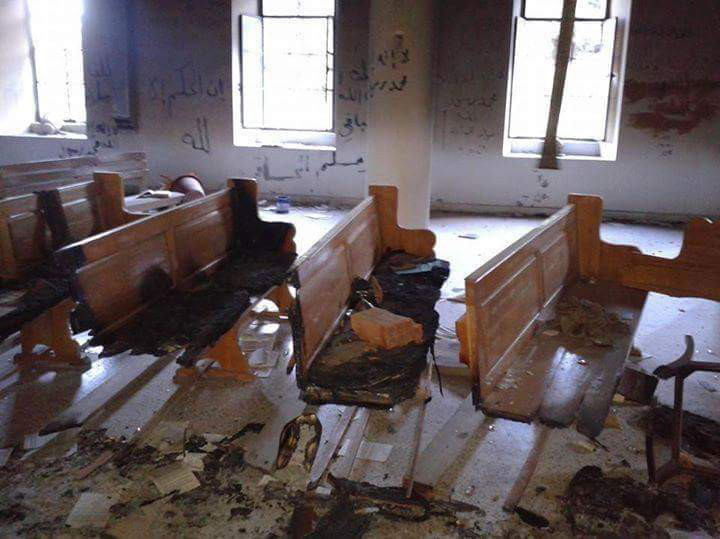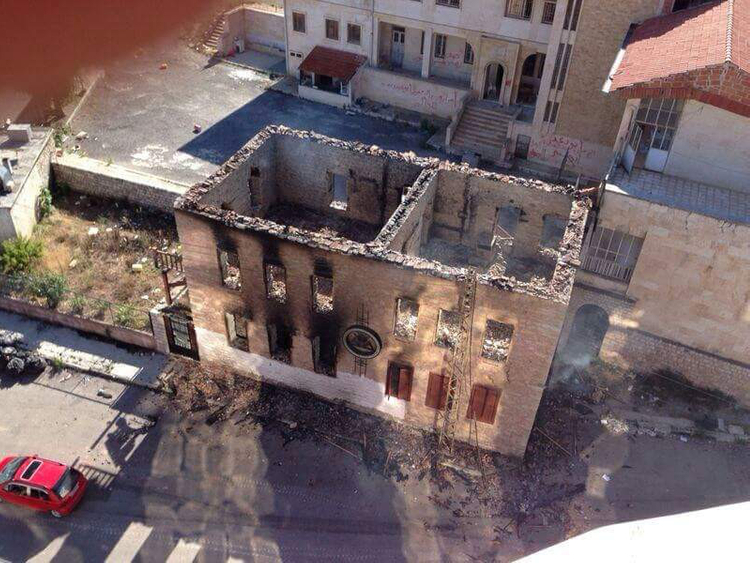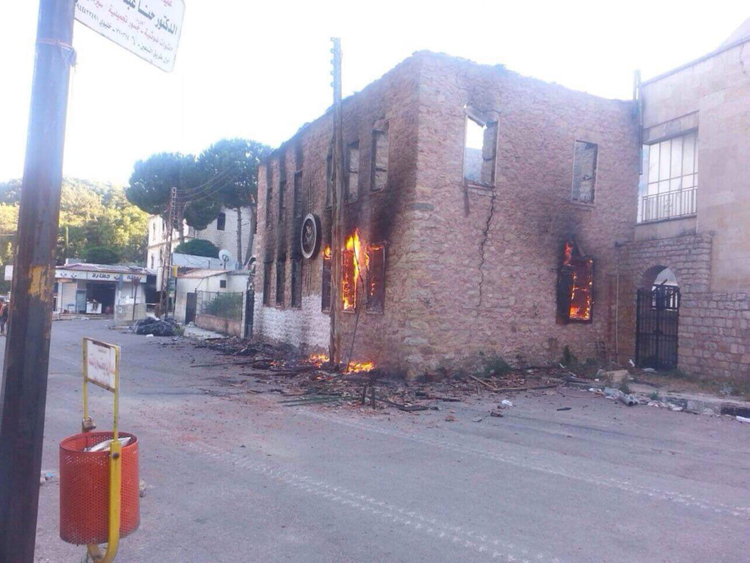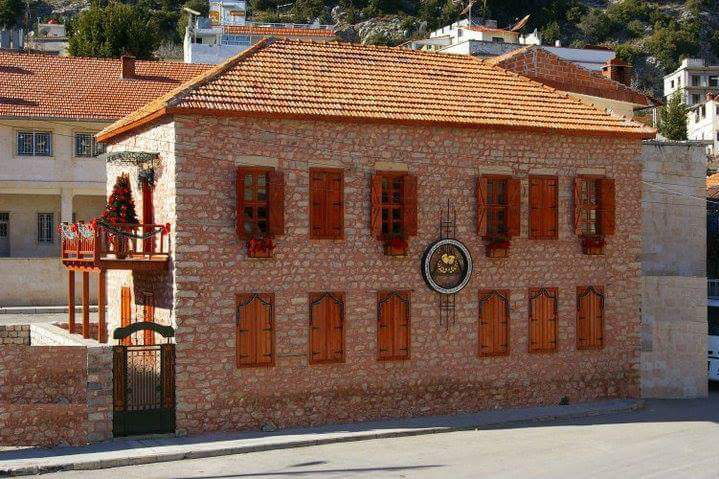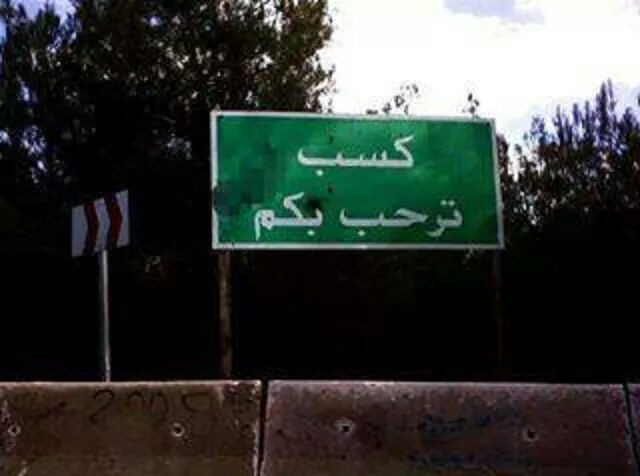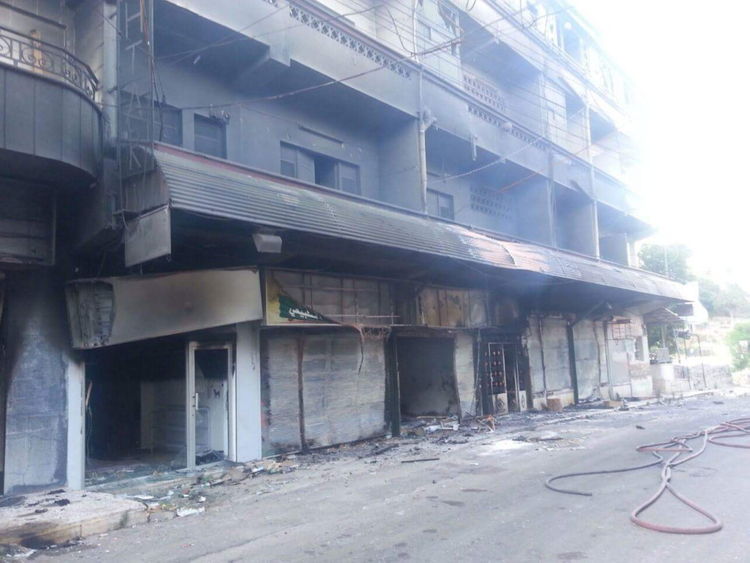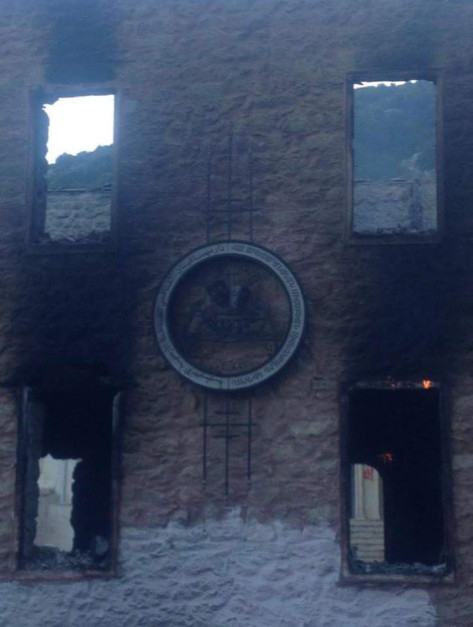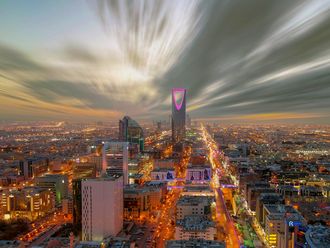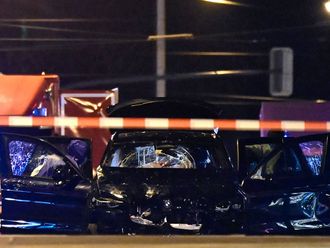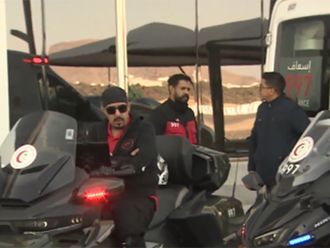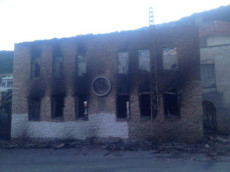
Dubai: It took three years for the conflict in Syria to spread to Kassab, a town on the Mediterranean coast by the Turkish border near the city of Lattakia. Long enough that its townsfolk thought they had been spared by the displacement and dereliction that came with the war.
When the sound of bombs erupted to advance from the outskirts of town in the early morning of March 21, 2014 — Mother’s Day — the town awoke in tumult. Where there should have been the sound of store-shutters rattling open in the square, and the chug of tractors greeting the acres of apricot, apple and plum farms, instead, there was the deafening sound of firepower and panic. Terrorists from the Al Nusra Front — an Al Qaida-linked group, had arrived.
The once lush and intimate town of 2,000 inhabitants, the majority of whom were of Armenian ethnicity, is now a charred and desolate landscape.
The townsfolk, who proudly identify themselves as Kassabtzis and even tailored a creole language, Kassaberen, intrinsic to the community’s everyday affairs, were forced to flee from a land they held for centuries — dating back to the period of the Armenian Kingdom of Cilicia (1198-1375). Many fled to nearby Syrian cities like Lattakia or Tartus or left for Beirut. While some found shelter in their relatives’ homes, many slept in church halls and school auditoriums.
However, there were those who chose to stay, finding it too difficult to leave behind land inherited through lineage or believed the attack to be a transient episode. Those who chose to stay saw their prized town plucked, plundered and left in cinders.
The Jurian family, who have been residents of the town longer than they can chart back, are an apt microcosm of the plight endured by the Kassabtzis.
Papken Jurian lost his son, Kevork, after he was gunned down by militants for wearing boots.
‘They killed my boy’
“He died… He was killed on his 24th birthday,” Papken said, speaking to Gulf News over the phone.
“When the militants first started attacking the outskirts, Kevork and the other Kassabtzi youth drove around the town warning people and advising them to evacuate,” he said, “he was on his motorcycle.”
The town was evacuated in a few short hours. Papken said that around 20 people, mostly the elderly, stayed behind.
“The town was emptied in just a few hours, save for the elderly. I stayed behind because we couldn’t take my mother, who is in her late nineties, with us. And since I stayed, my brother, wife and son stayed behind as well.
“The militants started going from house to house, looting and vandalising. When they reached our home, they separated the men from the women and took them somewhere else. That is when it happened. When they killed my boy,” he said.
Upon noticing Kevork’s boots, they asked whether he was affiliated to the Syrian army. “They saw my rifle above the mantelpiece. I assured them it was only a hunting rifle, every family in Kassab owns at least one. But then they noticed Kevork was wearing boots. He often wore them. It was good footwear for the work on the farm. They thought he was a soldier. I tried telling them he wasn’t a soldier, he was my only son. Sole sons do not need to serve in the Syrian army. But they didn’t listen. They shot him point-blank.”
Papken and his brother, Asped, were then manhandled out of the house.
“I still remember seeing him there on the floor. His head cocked back, eyes open to the ceiling. They wouldn’t let me bury him. I begged them to let me bury him, they didn’t listen. We left him like that, on the floor. They pushed us out with their guns
“We were taken to another house, where all the prisoners had been gathered. My wife and mother were there already. My wife asked me where her son was. I couldn’t tell her the truth. I told her they had taken him somewhere else.”
Papken recalls seeing the town enveloped in black smoke.
“There were pickup cars everywhere, filled to the brim with the town’s belongings, clothes, jewellery, washing machines, gas stoves, they took anything and everything. The town’s churches were being desecrated. The market square was burning and buildings that are over a century old turned to cinders. It was too much.”
When asked whether they were fed by the militants, Papken said: “Yes, yes they offered us food. But who had the appetite to eat? Kevork’s mother, my wife, kept asking me if they were feeding our son and if he was safe. How could I tell her that her only son was dead? I simply said he was fine.”
Three days later, Papken and Asped managed to convince the militants to take them back home to bury Kevork.
“Four of them escorted us back to the house. Kevork was still there, lying on the floor, eyes open. They told us to ‘get it over with.’ We dug a hole in the backyard as fast as we could with their guns drawn on us. After we were finished, I unhinged a door to mark his grave.”
The Jurian family was then taken to the Turkish city of Iskenderun, where they stayed until Kassab was vacated by the militants in June.
“I still hadn’t told my wife about Kevork. While we were there, my daughter, who was staying in Aleppo with her husband, called. She had been trying to find out what happened to Kevork. I should’ve told them earlier, but I just couldn’t. She called saying that a few men contacted her offering to return Kevork for $25,000 ([Dh91,828.] These fake offers were fairly common. People would approach families, offering the return of their loved ones for outrageous sums.”
It was then that Papken told his family about what had happened to their son.
“I took the phone and told my daughter not to value these offers. I told her I had buried her brother with my own hands. I told my wife that her son died in my hands…”
On June 14, 2014, the townsfolk of Kassab returned to their homes to find their schools in shambles, churches burnt and homes plundered and upended. Many found the sight too much to bear and returned to the cities and towns they sought refuge in. Today, only a small fraction of the town’s population resides there, mainly the very young and the very old.
‘Barbaric’
“It was barbaric,” Papken’s brother, Asped, said, “there were scimitars and malicious messages spray-painted on the walls. The church pews were destroyed. Houses and buildings that stood for the town’s history were decimated. Centuries were lost in months.”
On social media, Kassabtzis, scattered across the globe, post images of the town in its heyday, wondering if it would ever become the cosy, personal town it was loved for.
“Kevork’s friends still post pictures of him online,” Asped said, “It’s unreal to think that little over a year ago, these boys were sitting in our kitchens, bantering and teasing each other. There was a saying in Kassab: One would find the true essence of community in the marriages and funerals of Kassab. Kevork never got a proper funeral. We moved him to the graveyard after we came back but it was not a proper funeral. Then again, there are thousands of families in the country who are suffering from similar woes.”


